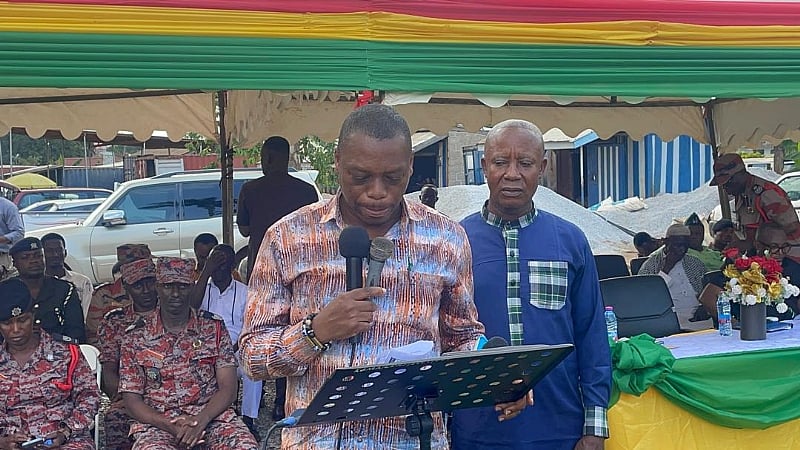Professor Kingsley Nyarko, the Member of Parliament representing the Kwadaso Constituency, has publicly asserted the necessity for adherence to the Supreme Court’s ruling regarding the parliamentary seats that were recently restored. The Speaker of Parliament, Alban Bagbin, made a contentious declaration deeming four parliamentary seats, affected by the recent political shifts, as vacant. This decision included three representatives from the New Patriotic Party (NPP) and one from the National Democratic Congress (NDC). Following this declaration, the NDC boldly proclaimed themselves the Majority party in Parliament, creating a significant political stir. However, Nyarko has contended that this is an overreach and highlighted that such actions should align with the existing legal framework.
In light of the tensions between the two major political parties, Nyarko emphasized that it is of paramount importance for all parliamentarians to respect the legality of the situation as dictated by the Supreme Court. His comments come as a response to the NDC’s claims of having the majority, which he argues undermines the legal standing of the Parliament. He noted that the situation is not just about party politics but about the integrity of Ghana’s democracy and the rule of law. He maintained that the independence of the judiciary should be safeguarded and respected by all actors within the political landscape, reflecting the view that political maneuvers should not eclipse legal judgments.
The controversy escalated when the NPP initiated legal proceedings contesting Speaker Bagbin’s actions. Following these proceedings, the Supreme Court issued a Stay of Execution on the Speaker’s ruling, effectively halting any immediate effect of the declaration regarding the vacant seats. Professor Nyarko pointed out that this intervention from the highest court in the country serves as a crucial reminder of the checks and balances that exist within Ghana’s democratic framework. He implored his colleagues, especially from the NDC, to wait for the resolution of this legal matter instead of preemptively acting on their political aspirations and claims of majority.
Nyarko’s stance urges parliamentarians to put aside party allegiances and prioritize adherence to constitutional guidelines. He believes that party loyalty should not lead to actions that polarize the political environment further or disrespect judicial authority. His call to action resonates with the broader idea that the health of a democracy relies on the willingness of its representatives to function within the boundaries of established laws rather than personal or political interests. He expressed hope that all parliamentarians would prioritize stability and unity in the face of these challenges.
In his discussions, Professor Nyarko did not shy away from the potential consequences that could arise from disregarding the Supreme Court’s directives. He argued that to undermine the authority of the judiciary is to jeopardize the foundation of Ghana’s democracy. This perspective draws attention to the necessity of maintaining respect for both the letter and the spirit of the law to foster a political culture rooted in accountability and legitimacy. Drawing from historical contexts can highlight how past disregard for legal frameworks has led to civil unrest and political instability, illustrating the importance of this current debate.
Ultimately, Professor Nyarko’s remarks serve as a reminder of the principles that underpin democratic governance in Ghana. By advocating for legal respect and patience in the process, he embodies the ethos of responsible leadership. Nyarko’s appeal to uphold these principles is indeed a call for reflection among parliamentarians, encouraging them to act in ways that nurture rather than undermine the democratic structures that exist. In a politically charged environment, his insistence on respect for the rule of law acts not only as guidance for current political behavior but also as an essential commentary on the future trajectory of governance and civic responsibility in Ghana.














